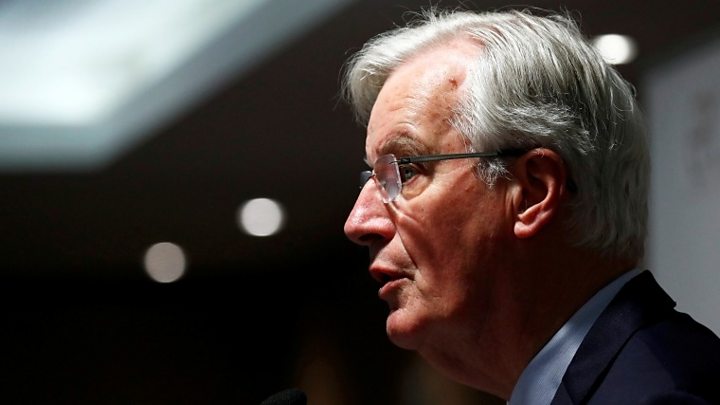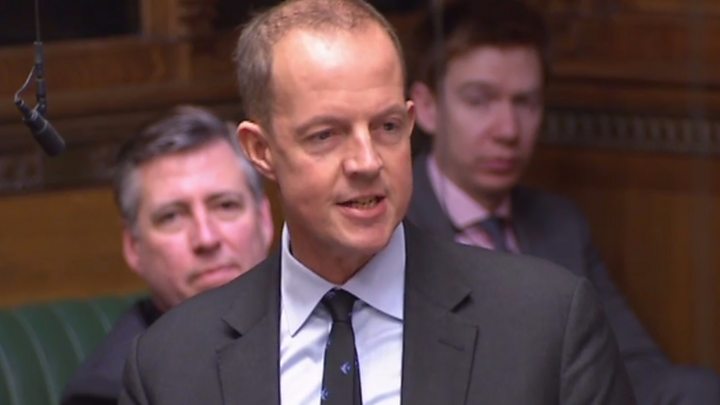HALFWEG, Netherlands (Reuters) - Ford is spending tens of millions of euros preparing for a possible British exit from the European Union without a trade deal and has yet to decide on its longer-term plans for Britain, Ford Europe chairman Steven Armstrong said on Tuesday.
FILE PHOTO: The Ford logo is seen at the North American International Auto Show in Detroit, Michigan, U.S., January 15, 2019. REUTERS/Brendan McDermid/File Photo
“We love being in Britain, but it has to be competitive and if it’s not competitive then we’ll have to take whatever actions we’ll need to take to protect the business,” Armstrong told Reuters at an event in the Netherlands.
Ford, which makes 1.3 million engines at two British locations, Bridgend and Dagenham, and cars in Germany, has warned it could face $1 billion in tariff costs in case of a so-called hard Brexit.
While the company has announced 5,000 job cuts in Germany, its second-biggest European market, it has yet to make major decisions in Britain, which is its biggest.
Armstrong said Ford was already spending tens of millions on euros on measures such as currency hedges and shifting inventory between countries. He said the best case scenario was that money spent preparing for Brexit would be “wasted”.
Britain’s departure from the EU has been pushed back from March 29 until at least April 12 or potentially much later, ruining some of the contingency plans of certain carmakers.
BMW’s Mini plant in Britain is closing for four weeks and Peugeot’s Vauxhall car factory for two weeks in moves planned months ago to help deal with any disruption from Brexit.
“We’ve been clear with the government in the UK and also in Brussels, we have to maintain frictionless trade at the borders and tariff-free trade,” said Armstrong.
TARIFF THREAT
Britain’s largely foreign-owned car industry has become increasingly incredulous as a stable and attractive investment environment descends into deep political crisis.
Ford’s British-built engines, which are shipped for fitting in vehicles in Germany, Turkey, the United States and elsewhere, could face delays and extra costs from a no-deal Brexit.
“We’ve spent the last 40 years putting a business together that relies on cross-border trading,” said Armstrong, who is overseeing an overhaul of Ford in Europe to refocus on its strong position in commercial vehicles and on popular European lines such as Fiesta, Britain’s top-selling passenger car.
“We can’t radically reshape on day one so you’d have to live with (tariffs) for a period of time,” he said.
Armstrong said Ford has hedged against the possibility of a sharp fall in the value of the pound through the end of 2019, while stockpiling inventory would help bridge a one or two month period of potential chaos around Brexit.
“But it’s impossible really to mitigate the financial impact in the longer term of no-deal,” he said. Ford could try to pass on higher tariff costs, but that would be difficult in Britain, where a recession would mean falling sales, he added.
“We haven’t really factored in completely the negative shock. There are a number of things that we would try to do but the reality is ... it would impact the whole of industry, not just Ford,” Armstrong said.
Reporting by Toby Sterling. Editing by Jane Merriman and Alexander Smith
https://www.reuters.com/article/us-britain-eu-ford/brexit-leaves-ford-at-crossroads-on-long-term-british-plans-idUSKCN1RE10I
2019-04-02 17:32:27Z
CBMifGh0dHBzOi8vd3d3LnJldXRlcnMuY29tL2FydGljbGUvdXMtYnJpdGFpbi1ldS1mb3JkL2JyZXhpdC1sZWF2ZXMtZm9yZC1hdC1jcm9zc3JvYWRzLW9uLWxvbmctdGVybS1icml0aXNoLXBsYW5zLWlkVVNLQ04xUkUxMEnSAX9odHRwczovL21vYmlsZS1yZXV0ZXJzLWNvbS5jZG4uYW1wcHJvamVjdC5vcmcvdi9zL21vYmlsZS5yZXV0ZXJzLmNvbS9hcnRpY2xlL2FtcC9pZFVTS0NOMVJFMTBJP2FtcF9qc192PTAuMSN3ZWJ2aWV3PTEmY2FwPXN3aXBl




